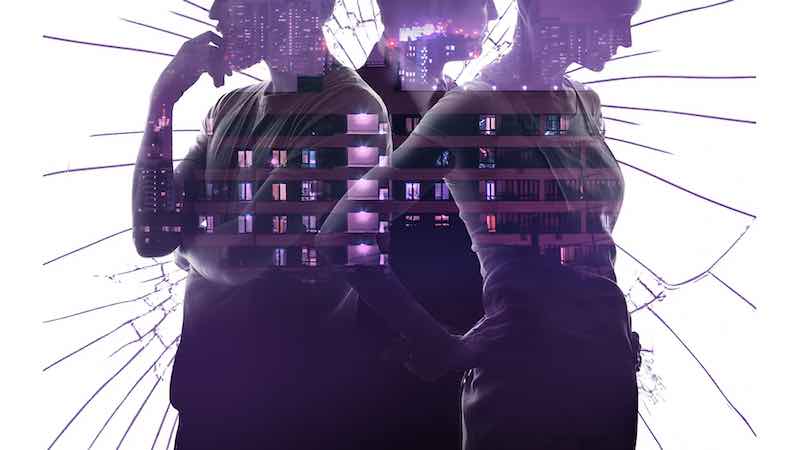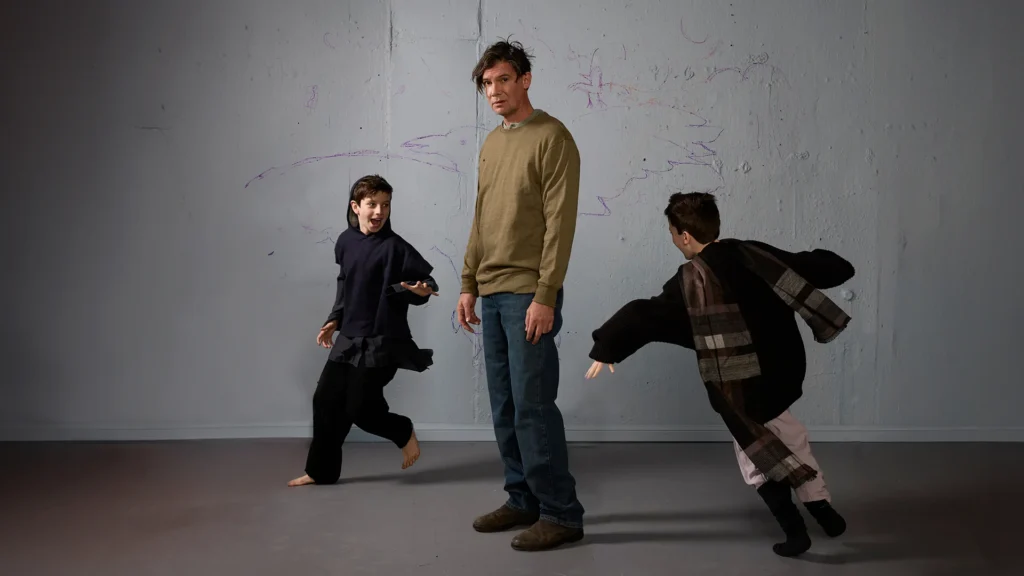A highly experimental and absurdist examination of the voyeuristic nature of reality TV programming
Reviewed by Rachael Vassallo
Theatre Works, St Kilda
Season: 29th August to 7th September 2024
Tickets: https://www.theatreworks.org.au/2024/volition
If you love theatre that is highly controversial, that challenges your expectations, and that will probably end up with free promotion in the tabloids, then look no further than Volition. Volition presents a double bill of reality television inspired works; Act I: The Volition Project, and Act II: The Volition Experiment. This work is the product of the 2024 Theatre Works Early Career Artist Program, a graduate opportunity offered by Theatre Works for performance students.
During a time of turmoil for the Melbourne theatre community, Volition is a refreshing production that deviates from current contemporary trends and instead draws upon 2010s nostalgia and modern youth counterculture. Having its heyday in the mid-2010s, reality television became the unsung entertainment hero of the week-night evening. ‘The Block’, ‘The Bachelor’ and ‘Married at First Sight’ became the talk of the next day. These shows are largely scripted and heavily exaggerated, with more focus on scripted or manipulated drama instead of the premise of the program itself. Regardless, reality television is still amongst the most popular genres of television in Australia, despite emerging creatives having much better offerings.
Watching this genre of television can be painful; the edit often focuses on fights and tears that are borderline disturbing, and the formatting evokes stress in the viewer. Many abhor this programming though in a can’t look away in a car-crash fashion. Both works criticise the voyeuristic nature of reality programming, particularly the notion of broadcasting vulnerable and personal moments of people’s lives to an audience of millions. Both touch on the more subtle criticisms, particularly the nepotistic and tokenistic nature of the contestants. Volition‘s creative team demonstrate a robust knowledge of its stimuli, being both celebratory and critical of current trends within it.
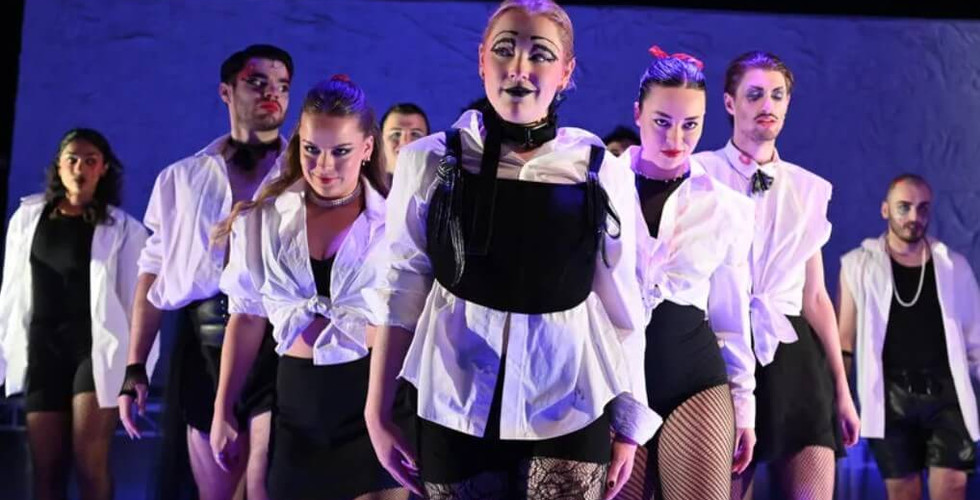
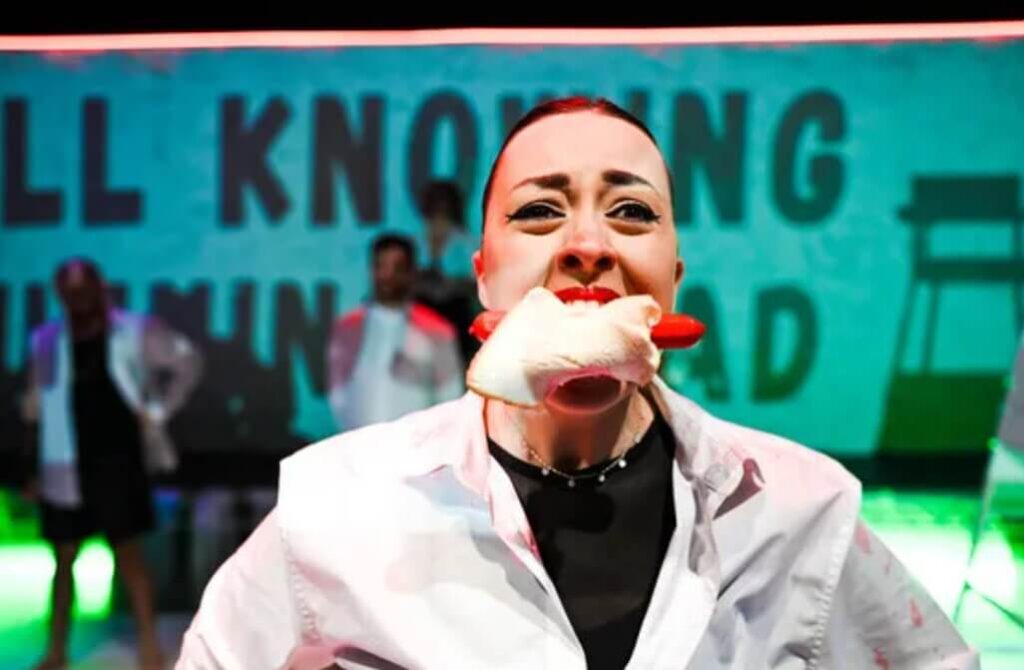
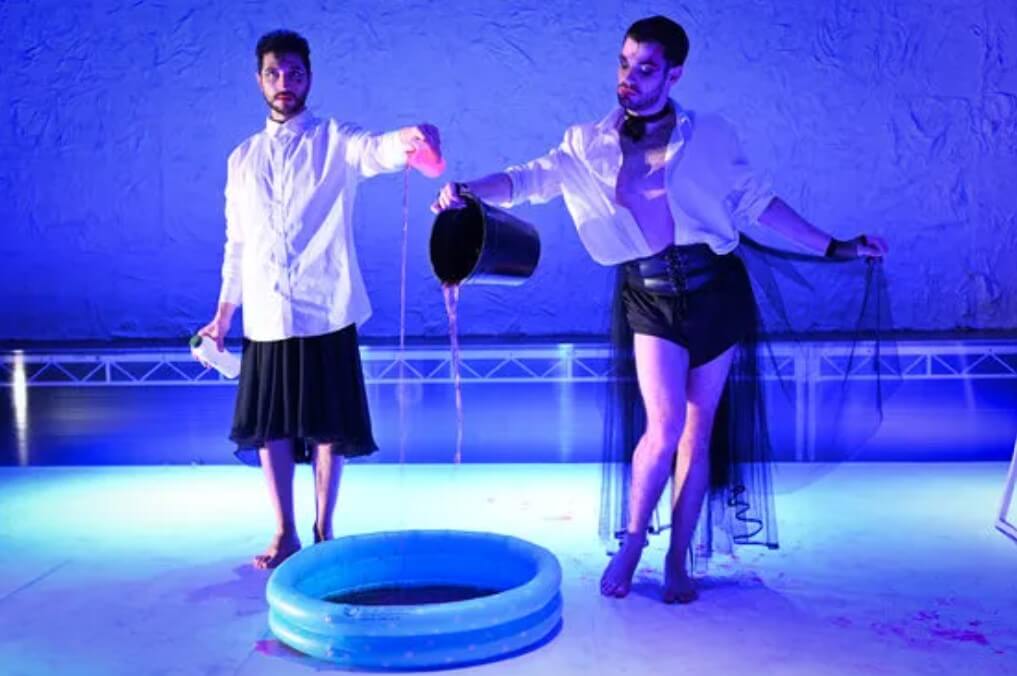
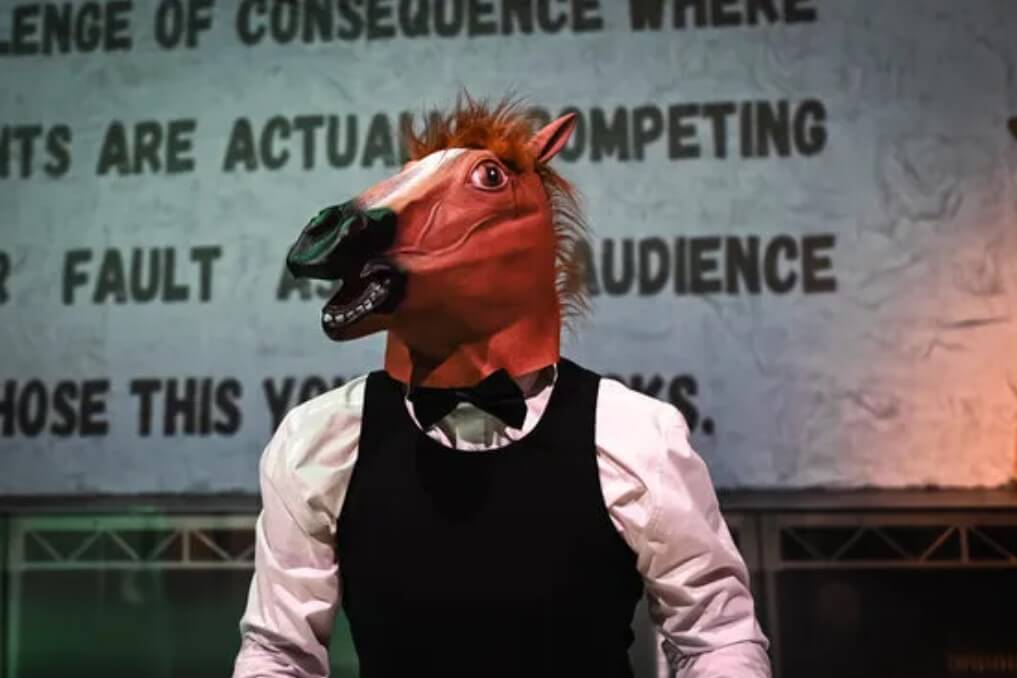
Photos by Steven Mitchell Wright
The Volition: Project is a spontaneous trip through the absurd and at times the cruel. The plot follows a group of archetypical reality participants in a Big Brother House of Horrors. Directed by Belle Hansen, Project is a fast-paced, absurdist, Avant Garde style piece; think Antonin Artaud meets Eugene Ionesco. Visually and audibly shocking at every turn, Hansen’s direction focuses on the exploitation of contestants in reality television. The opening of Volition Project must be praised for its sheer uniqueness. Audience members are given tokens, each with a stereotype on them, then instructed to place them in the hand of the actor which they felt fit the stereotype best. By offering audience participation, the relationship between the actor and audience feels more intimate, as it provides us with some insight into what to expect from the production.
Performers’ commitment to the physical demands of this performance is fantastic, as the actors show little hesitance, enduring grotesque and revolting, often sexual challenges, such as making a Bunnings sausage with one’s mouth on all fours. As the participants are subjected to the wide variety of humiliating challenges, losers are killed off. The portrayal of their deaths is extremely poignant as they provide opportunities for discussion regarding ‘pretty privilege’ and nepotism within reality television. The work is confronting and challenging; there were times that the visuals and dialogue became so graphic, I was surprised it went ahead.
The performance of Project is entirely improvised. Hansen employs the type of improvisation where a stimulus is thoroughly researched and discussed, and a performance is born upon it where the many hands of the actors are all present in it. The actor-led nature of this work is challenging to a director as their role becomes more of a guide than an instructor which makes Hansen’s direction all the more admirable.
There are times when the improvisation becomes disjointed, particularly when it deviates from reality into fantastical scenarios. The consistency is certainly there, though it could benefit from slight tweaks in continuity to complete it. Hansen depicts the gross emotional brutality of reality television effectively, though it’s worth mentioning that there were times when the grotesque elements became overwhelming. Project is certainly more of an engaging visual spectacle but could be benefit from more balance.
After a short intermission, the audience are treated to the second act, The Volition: Experiment. Directed by Steven Mitchell Wright, Experiment presents a more naturalistic, yet distant Brechtian style, single act structure. Experiment uses a combination of scripted dialogue and improvised performance, which also employs the conventions of Big Brother, but instead deserts the contestants in a remote camping ground like “I’m a Celebrity…” format. Contestants are ranked based on deeply personal details, and the least desirable are eliminated. One contestant disguises themselves and is readmitted as a bonus contestant. Wright focuses primarily on dialogue, incorporating monologues as well, which explore the toxic nature of the competition, and applies it to the negative impacts of reality programming on society and the wider scope of toxic behaviour.
Experiment employs a very simple set, using a table and chairs, which the characters converse around. Other locations depicted within the work are facilitated by physicality of the characters. This creative improvisational style maintains strong visual interest throughout the duration of the one-act play. The props are also very minimal and simple; a long-narrow serving dish that resembled a light fitting my grandma had, serving what appeared to be plain brown rice which the characters ate with their hands. The costuming highlights the focus on channelling the archetypes rather than stereotyping. To emphasise the othering of the reintroduced character, they are depicted as an angel. This costume choice is excellent as it differentiates the character whilst also offering a comedic interlude.
Experiment focuses primarily on deducing the impact of reality television on our community rather than mocking the medium itself. The dialogue shifts the naturalistic timeframe of the performance as it focuses on the characters’ decision-making in the future. Each character can understand the impact of the environment and its effect on their behaviour and the effect of themselves on others. There are times when this dialogue becomes too complex, and the audience get lost trying to keep track of the work. Translating some of the dialogue into physicality to emphasise its importance and highlight prominent points would ease confusion.
Experiencing the work of emerging artists is a must in this time of uncertainty for theatre. What I saw in this production is a team of forward-thinking creators and performers who are willing to experiment and push boundaries. As a reviewer, it’s always my hope that what write is taken as feedback and not criticism and that all emerging theatre practitioners continue to grow and refine their craft.
Directors: Belle Hansen & Steven Mitchell Wright
Sound Designer and Composer: Tom Godbert
Sound and Composition Associate/Mentor: Jack Burmeister
Lighting Designer: Laura Hook
Performers: Ella Le Fournour Jasper Jordan Kasey Barratt Ozzy Breen-Carr Hugo Gutteridge Charlie Morris Paolo Bartolomei Eleanor Golding Ryan Henry Senuki Thotahewage Sarah Frencham Rosa Ablett-Johnstone Liam Crevola River Stevens Murdoch Keane Amir Yacoub

